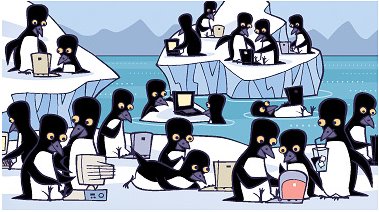Are we separate from the technology we use? Is it incidental to who we are?
If we had grown up in a different technological environment e.g. that of a Victorian child, would we be who we are? Or would we be, in some ways, different?
Does the mind make technology and then technology make the mind?
Take video games as an example. With an industry the size of Hollywood, how do they affect today's children?
The text below is sourced from:
http://www.mediafamily.org/research/report_vgrc_2004.shtmlVideo games are natural teachers. Children find them highly motivating; by virtue of their interactive nature, children are actively engaged with them; they provide repeated practice; and they include rewards for skillful play. These facts make it likely that video games could have large effects, some of which are intended by game designers, and some of which may not be intended. Recently, the Wall Street Journal reported that several companies are now designing video game consoles for preschoolers (Kim, 2004). Given the potential video games have to influence, we should pay attention to the fact that children are spending increasing amounts of time with them at younger and younger ages.
Video games have been shown to teach children healthy skills for the self-care of asthma and diabetes, and have been successful at imparting the attitudes, skills, and behaviors that they were designed to teach (Lieberman, 1997; 2001). In a study with college students, playing a golf video game improved students' actual control of force when putting, even though the video game gave no bodily feedback on actual putting movement or force (Fery & Ponserre, 2001). There have even been studies with adults showing that experience with video games is related to better surgical skills (e.g., Pearson, Gallagher, Rosser, & Satava, 2002; Rosser et al., 2004; Tsai & Heinrichs, 1994). Research also suggests that people can learn iconic, spatial, and visual attention skills from video games (De Lisi & Wolford, 2002; Dorval & Pepin, 1986; Green & Bavelier, 2003; Greenfield, deWinstanley, Kilpatrick, & Kaye, 1994; Griffith, Volschin, Gibb, & Bailey, 1983; Okagaki, & Frensch, 1994; Yuji, 1996). Finally, research on educational software has shown that educational video games can have very significant effects on improving student achievement (Murphy, Penuel, Means, Korbak, & Whaley, 2001).
Given the fact that video games are able to have several positive effects, it should come as no surprise that they also can have negative effects. Research has documented negative effects of video games on children's physical health, including obesity (Berkey et al., 2000; Subrahmanyam et al., 2000; Vandewater, Shim, & Caplovitz, 2004), video-induced seizures (Kasteleijn-Nolst Trenite et al. 1999; Badinand-Hubert et al., 1998; Ricci & Vigevano, 1999; Ricci et al., 1998), and postural, muscular and skeletal disorders, such as tendonitis, nerve compression, and carpal tunnel syndrome (e.g., Brasington, 1990; SaftetyAlerts, 2000). However, these effects are not likely to occur for most children. The research to date suggests that parents should be most concerned about two things: the amount of time that children play, and the content of the games that they play.
Simply put, the amount of time spent playing video games has a negative correlation with academic performance (e.g., Anderson & Dill, 2000; Anderson et al., under review; Gentile et al., 2004; Harris & Williams, 1985). Playing violent games has a positive correlation with antisocial and aggressive behavior (most researchers define violence in games as when the player can intentionally harm other characters in the game; e.g., Anderson & Dill, 2000; Anderson et al., under review; Gentile et al., 2004). Content analyses show that a majority of games contain some violent content, and about half of those include violence that would result in serious injuries or death (Children Now, 2001; Dietz, 1998; Dill, Gentile, Richter, & Dill, in press). A majority of 4th - 8th grade children prefer violent games (Buchman & Funk, 1996; Funk, 1993).
Looking across the dozens of studies that have now been conducted on violent video games, there appear to be five major effects. Playing violent games leads to increased physiological arousal, increased aggressive thoughts, increased aggressive feelings, increased aggressive behaviors, and decreased prosocial helping behaviors (Anderson, 2004; Anderson & Bushman, 2001). These studies include experimental studies (where it can be shown that playing violent games actually causes increases in aggression), correlational studies (where long-term relations between game play and real-world aggression can be shown), and longitudinal studies (where changes in children's aggressive behaviors can be demonstrated). For example, in a study of over 400 3rd - 5th graders, those students who played more violent video games early in the school year changed to become more physically aggressive later in the school year, even after statistically controlling for sex, race, total screen time, prior aggression, and other relevant variables (Anderson et al., under review). Apparently practice does make perfect.
The research also seems to show that parents have an important role to play. Children whose parents limited the amount of time they could play and also used the video game ratings to limit the content of the games have children who do better in school and also get into fewer fights (Gentile et al., 2004). Regarding limiting the amount, the American Academy of Pediatrics recommends that children not spend more than one to two hours per day in front of all electronic screens, including TV, DVDs, videos, video games (handheld, console, or computer), and computers (for non-academic use). This means seven to 14 hours per week total. The average school-age child spends over 37 hours a week in front of a screen (nine hours of which is with video games, although there are large sex-differences - boys average 13 hours/week and girls average five hours/week; Gentile et al., 2004). We all like to think our children are above average, but on this dimension it's not a good thing. Regarding content, educational games are likely to have positive effects and violent games are likely to have negative effects. Almost all (98%) of pediatricians believe that violent media have a negative effect on children (Gentile, Oberg, Sherwood, Story, Walsh, & Hogan, 2004).
The conclusion we draw from the accumulated research is that the question of whether video games are "good" or "bad" for children is oversimplified. Playing a violent game for hours every day could decrease school performance, increase aggressive behaviors, and improve visual attention skills. Instead, parents should recognize that video games can have powerful effects on children, and should therefore set limits on the amount and content of games their children play. In this way, we can realize the potential benefits while minimizing the potential harms. The accumulated research shows that the video game industry must stop giving a mixed message to parents - that they have a good rating system but that there's no research to show that video games can have harmful effects. There is starting to be a large body of evidence that games can have powerful effects, both for good and ill.


